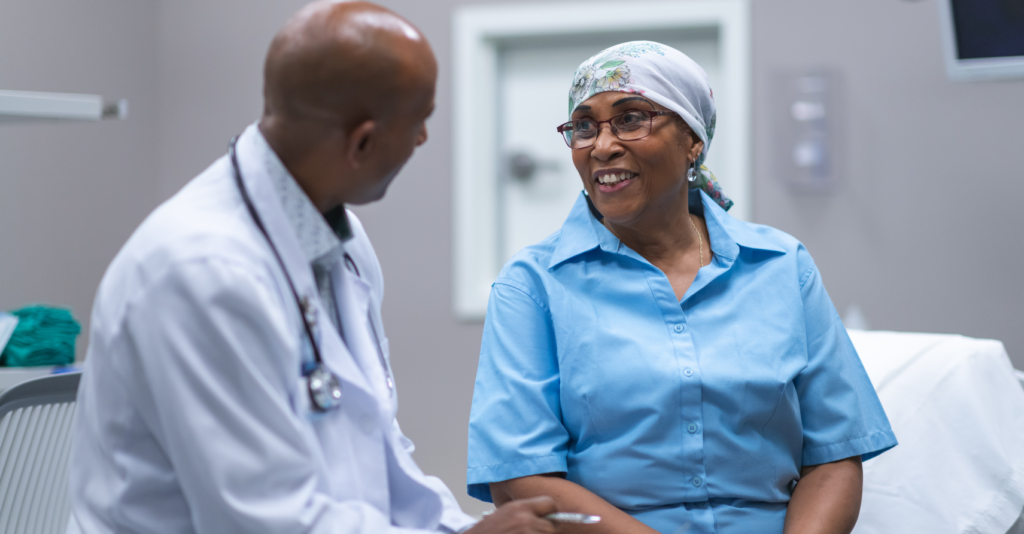
What Happens in Your Body When You Have Non-Small Cell Lung Cancer (NSCLC)?
Symptoms of NSCLC
Respiratory Symptoms:
- Persistent cough
- Coughing up blood
- Chest pain
- Wheezing
- Shortness of breath
General Symptoms:
- Unexplained weight loss
- Loss of appetite
- Fatigue and weakness
- Hoarseness
Causes and Risk Factors of NSCLC
Risk factors that may increase your chance of developing NSCLC include:
- Smoking
- A family history of lung cancer
- Asbestos exposure
- Exposure to metal and mineral dust
- Exposure to radon
- Previous radiation to the chest area
Accessing the Best Non-Small Cell Lung Cancer Care
Expert Tips
- Get information about choosing an NSCLC specialist or treatment center
- Talk with loved ones about how they can help you
- Find out what your insurance covers
- Find out if you have any specific mutations and how that relates to treatment
- Talk openly with your doctor about your fears or concerns
- Determine if financial assistance is available
Related Links
How Can You Access Personalized Lung Cancer Treatment?
How Can I Get the Best Lung Cancer Care No Matter Where I Live?
Non-Small Cell Lung Cancer Access & Early Detection Programs
Tools to help you feel activated and connect with resources to overcome barriers to accessing care.
Topics:
- Advice for People Newly Diagnosed with Non-Small Cell Lung Cancer
- Non-Small Cell Lung Cancer Treatment and Clinical Trials
- Accessing Non-Small Cell Lung Cancer Care
- Non-Small Cell Lung Cancer Patient Profiles
- [ACT]IVATED Non-Small Cell Lung Cancer Resources
- Non-Small Cell Lung Cancer Biomarkers
- Non-Small Cell Lung Cancer Veterans
Empowers NSCLC patients and families by addressing factors like age, ethnicity, and insurance that impact outcomes. Gain confidence in your healthcare decisions, no matter where you live.
Topics:
- Non-Small Cell Lung Cancer Patient Self-Advocacy Profiles
- Accessing the Best Non-Small Cell Lung Cancer Care
- Understanding Non-Small Cell Lung Cancer Testing
- Non-Small Cell Lung Cancer Treatment Overview
Improves NSCLC patients’ and caregivers’ familiarity with remote access to healthcare, and thus enhancing quality of care regardless of geographical location.
Topics:
- Utilizing Telemedicine in Non-Small Cell Lung Cancer Care
- Support for People with Non-Small Cell Lung Cancer



